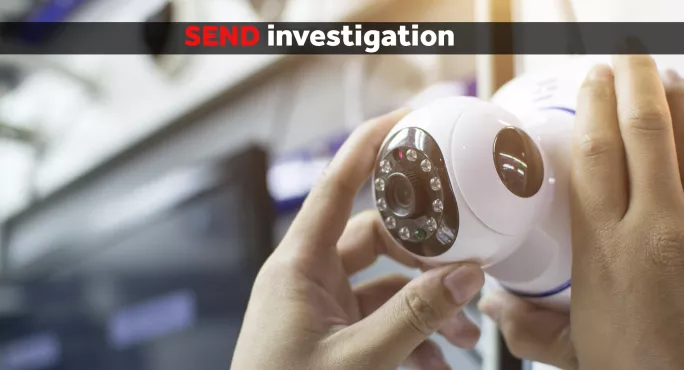- Home
- Calls for more checks on SEND services that fail
Calls for more checks on SEND services that fail

Campaigners have warned that areas of the country that have been found to have shortcomings in their services for children with special educational needs and disabilities (SEND) could go unchecked for several years.
Despite inspections covering systemic failings across the country, Ofsted and the Care Quality Commission can only return to failing areas once to check on their progress.
Tes reveals today that two-thirds of the inspections carried out so far this year and more than half of the first 100 inspections have resulted in authorities being told to produce a written statement of action on how areas intend to improve.
Growing crisis: Two-thirds of the latest SEND inspections find failings
Analysis: Inspections uncover how young people with disabilities are being let down
Since the inspections began, 51 out of the first 100 areas visited have been told to produce written statements of action.
To date, inspection teams have returned to 11 of the areas that had been told to address significant weaknesses in their SEND provision.
Of these 11, six areas have been told that they have not made sufficient progress.
However, under the current inspection system, Ofsted and CQC will not return to carry out more monitoring inspections.
The reports - which found repeated failings - conclude by saying: “As leaders of the local area have not made sufficient progress against all of the weaknesses identified in the written statement, it is for the DfE and NHS England to decide the next steps.
“This may include the secretary of state using his powers of intervention. Ofsted and CQC will not carry out any further revisits unless directed to do so by the secretary of state.”
It also unclear what will happen after all local authority areas have been inspected at the end of a five-year cycle in 2021.
Steve Haines, the executive director at the National Deaf Children’s Society, said: “Local areas are facing huge budget pressures, but the fact remains that these results are extremely concerning and disabled children are being failed.
“We cannot risk having a toothless, time-limited process that identifies serious weaknesses but does nothing to address them.
“If 50 per cent of schools were branded a failure by Ofsted, it’s inconceivable that we’d only be inspecting them for five years.
“These inspections must be carried out long term and followed up with clear consequences, so services that are failing will be rooted out and improved. That’s the very least that disabled children and their families expect.
“Local leaders also need to be given a strong incentive to show exactly what they will do to make vital improvements to their service.
Gillian Doherty, of the SEND Action group, has also pointed out that the increasing number of areas found to have shortcomings in the past two years shows that the inspections have become more rigorous.
While the first 50 inspections found 21 (42 per cent) authorities failed to meet the required standard for supporting disabled children, the next 50 had a failure rate of 60 per cent.
Ms Doherty raised concerns that some of the areas that were not told to produce written statements of action during earlier inspections might be found to have failings if they had been inspected today.
She said: “I think that the inspections have become more rigorous over time. I think when it started there was an acknowledgement that the government SEND reforms were new so areas were being inspected about their plans for the future whereas now the inspections are reporting on what the reality is on the ground.”
When the inspections were first launched in 2016, there were no plans for follow up checks.
However, the government introduced return visits last year for areas that had been told to produce written statements of action. This followed an increasing number of areas being found to have shortcomings.
Earlier this year, Damian Hinds - then education secretary - asked Ofsted and the CQC to produce plans for another wave of inspections for the whole system once the current cycle of inspections finishes in 2021.
He has also asked Ofsted and the CQC for their advice on further inspection or monitoring of those areas required to produce a written statement of action.
An Ofsted spokesperson said: “Ofsted and the Care Quality Commission have been talking to the Department for Education about the future of local area SEND inspections after March 2021, when the current inspection cycle ends. The remaining local areas will be inspected before then.
“As the local area SEND inspection handbook says, Ofsted and the CQC will usually re-visit local areas that have been required to provide a written statement of action around 18 months after the statement has been approved by the Department for Education.”
However, Ofsted did not say whether it wanted to be able to return to areas which are still found to be failing.
The DfE has been approached for a comment.
Register with Tes and you can read two free articles every month plus you'll have access to our range of award-winning newsletters.
Keep reading with our special offer!
You’ve reached your limit of free articles this month.
- Unlimited access to all Tes magazine content
- Save your favourite articles and gift them to your colleagues
- Exclusive subscriber-only stories
- Over 200,000 archived articles
- Unlimited access to all Tes magazine content
- Save your favourite articles and gift them to your colleagues
- Exclusive subscriber-only stories
- Over 200,000 archived articles



